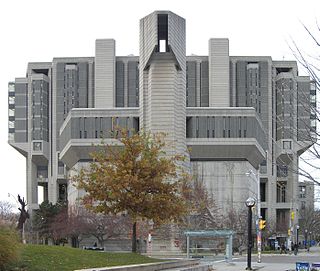
The John P. Robarts Research Library, commonly referred to as Robarts Library, is the main humanities and social sciences library of the University of Toronto Libraries and the largest individual library in the university. Opened in 1973 and named for John Robarts, the 17th Premier of Ontario, the library contains more than 4.5 million bookform items, 4.1 million microform items and 740,000 other items.

The University of Toronto Scarborough, also known as U of T Scarborough or UTSC, is a satellite campus of the University of Toronto. Located in Scarborough, Toronto, Ontario, Canada, the campus is set upon suburban parkland in the residential neighbourhood of Highland Creek. It was established in 1964 as Scarborough College, a constituent college of the Faculty of Arts and Science. The college expanded following its designation as an autonomic division of the university in 1972 and gradually became an independent institution.

The Faculty of Applied Science and Engineering is an academic division of the University of Toronto devoted to study and research in engineering. Founded in 1873 as the School of Practical Science, it is still known today by the longtime nickname of Skule. The faculty is based primarily across 16 buildings on the southern side of the university campus in Downtown Toronto, in addition to operating the Institute for Aerospace Studies facility. The faculty administers undergraduate, master's and doctoral degree programs, as well as a dual-degree program with the Rotman School of Management.

The University of Winnipeg is a public research university in Winnipeg, Manitoba, Canada, that offers undergraduate faculties of art, business and economics, education, science and kinesiology and applied health as well as graduate programs. UWinnipeg's founding colleges were Manitoba College and Wesley College, which merged to form United College in 1938. The University of Winnipeg was established in 1967 when United College received its charter. The governance was modeled on the provincial University of Toronto Act of 1906 which established a bicameral system of university government consisting of a senate (faculty), responsible for academic policy, and a board of governors (citizens) exercising exclusive control over financial policy and having formal authority in all other matters. The president, appointed by the board, was a link between the bodies to perform institutional leadership.
The Faculty of Information is an undergraduate and graduate school that offers the following programs: a Bachelor of Information, a Master of Information (MI), a Master of Museum Studies (MMSt), and a PhD in information studies, as well as diploma courses. As a member of the iSchool movement, the Faculty of Information takes an interdisciplinary approach to information studies, building on its traditional strengths in library and information science, complemented by research and teaching in archives, museum studies, user experience, information systems and design, critical information studies, culture and technology, knowledge management, digital humanities, the history of books, data science and other related fields. It is located on St. George Campus, in the Claude Bissell building, at 140 St. George Street, which is attached to the John P. Robarts Research Library and the Thomas Fisher Rare Book Library.
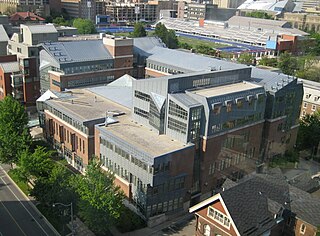
The Joseph L. Rotman School of Management, is the University of Toronto's graduate business school, located in Downtown Toronto. The University of Toronto has been offering undergraduate courses in commerce and management since 1901, but the school was formally established in 1950 as the Institute of Business Administration, which was then changed to the Faculty of Management Studies in 1972 and subsequently shortened to the Faculty of Management in 1986. The school was renamed in 1997 after the late Joseph L. Rotman (1935–2015), its principal benefactor.
Jewish studies is an academic discipline centered on the study of Jews and Judaism. Jewish studies is interdisciplinary and combines aspects of history, Middle Eastern studies, Asian studies, Oriental studies, religious studies, archeology, sociology, languages, political science, area studies, women's studies, and ethnic studies. Jewish studies as a distinct field is mainly present at colleges and universities in North America.

Ronald J. Deibert is a Canadian professor of political science, philosopher, and director of the Citizen Lab at the Munk School of Global Affairs, University of Toronto. The Citizen Lab is an interdisciplinary laboratory focusing on research, development, and high-level strategic policy and legal engagement at the intersection of information and communication technologies, human rights, and global security. He is a co-founder and a principal investigator of the OpenNet Initiative and Information Warfare Monitor projects. Deibert was one of the founders and former VP of global policy and outreach for Psiphon.
The Munk School of Global Affairs and Public Policy at the University of Toronto is an interdisciplinary academic centre with various research and educational programs committed to the field of globalization. It offers master's degrees in Global Affairs, Public Policy, European, Russian, and Asia-Pacific studies. The Munk School is a member of the Association of Professional Schools of International Affairs, a group of schools that educate students in international affairs. Admission to the Munk School is highly competitive.
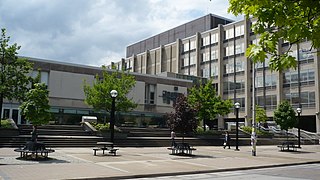
The Faculty of Arts & Science is a division of the University of Toronto which offers arts and science teaching and research institutions. With almost 27,000 undergraduate and 3,000 graduate students, Arts & Science represents over half the student population on the downtown campus.
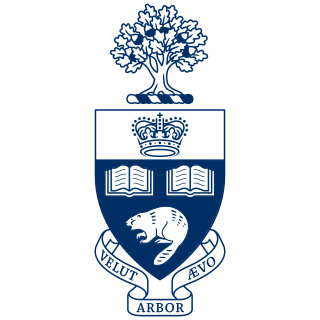
The University of Toronto is a public research university in Toronto, Ontario, Canada, located on the grounds that surround Queen's Park. It was founded by royal charter in 1827 as King's College, the first institution of higher learning in Upper Canada. Originally controlled by the Church of England, the university assumed its present name in 1850 upon becoming a secular institution. As a collegiate university, it comprises eleven colleges each with substantial autonomy on financial and institutional affairs and significant differences in character and history. The university also operates two suburban campuses located in Scarborough and Mississauga.
The Sam Nunn School of International Affairs, at the Georgia Institute of Technology located in Atlanta, Georgia is the only professional school of international affairs at a major technological institution. Founded in 1990, the School was renamed the Sam Nunn School of International Affairs in 1996 in honor of former US Senator and Georgia Tech alumnus Sam Nunn.
The Dr. Eric Jackman Institute of Child Study (JICS) is a research institute and laboratory school of the Ontario Institute for Studies in Education at the University of Toronto. The institute comprises a graduate education centre with a 2-year master of arts program, an elementary school for children from nursery to 6th grade, and a multidisciplinary research centre in child development.

Lisa Lowe is Samuel Knight Professor of American Studies and Ethnicity, Race, and Migration at Yale University. Prior to Yale, she taught at the University of California, San Diego, and Tufts University. She began as a scholar of French and comparative literature, and since her work has focused on the cultural politics of colonialism, immigration, and globalization. She is known especially for scholarship on French, British, and United States colonialisms, Asian migration and Asian American studies, race and liberalism, and comparative empires.

Canada–North Korea relations refer to the relations between Canada and the Democratic People's Republic of Korea. The relations between the two nations are very limited, as Canada suspended full diplomatic relations in 2010 over North Korea's destabilizing nuclear activity. Travel and commerce with North Korea are discouraged by the Canadian government and there is very little trade or diplomatic contact due to Canada's perspective that North Korea plays a destabilizing role in the Asia Pacific region.
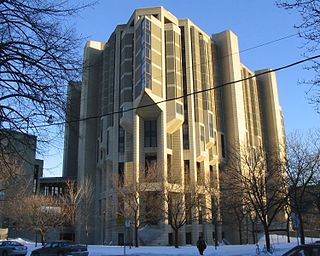
The University of Toronto Libraries system is the largest academic library in Canada and is ranked third among peer institutions in North America, behind only Harvard and Yale. The system consists of 44 libraries located on University of Toronto's three university campuses: St. George, Mississauga and Scarborough. This array of college libraries, special collections, and specialized libraries and information centres supports the teaching and research requirements of 215 graduate programs, over 60 professional programs, and more than 700 undergraduate degree programs. In addition to more than 12 million print volumes in 341 languages, the library system currently provides access to 150,467 journal titles, millions of electronic resources in various forms and almost 30,000 linear metres of archival material. More than 150,000 new print volumes are acquired each year.
Ritu Birla is an historian of modern South Asia. She is an associate Professor of History, is Richard Charles Lee Director of the Asian Institute, and former Director of the Centre for South Asian Studies at the Munk School of Global Affairs at the University of Toronto.
The Princeton Institute for International and Regional Studies (PIIRS) is the main research center for international studies and area studies at Princeton University and is one of the oldest centers of its kind in the United States. The Institute focuses on an interdisciplinary approach and its associated faculty is drawn from more than 150 professors and other scholars from more than 25 different departments within Princeton. Its director is historian Stephen Kotkin, the John P. Birkelund ’52 Professor in History and International Affairs.
Mari Ruti is Distinguished Professor of critical theory and of gender and sexuality studies at the University of Toronto in Toronto, Ontario, Canada. She is an interdisciplinary scholar within the theoretical humanities working at the intersection of contemporary theory, continental philosophy, psychoanalytic theory, cultural studies, trauma theory, posthumanist ethics, and gender and sexuality studies.
The School of the Environment at the University of Toronto is a trans-disciplinary academic unit that acts as a hub for the study of the environment, sustainability and climate change, offering undergraduate and graduate programs, along with joint programs with many disciplinary departments across the University. According to Maclean's Magazine, the School ranks second for environmental science programs in Canada. The School's research focusses on knowledge mobilization on a range of environmental issues, addressing questions of how to integrate scientific knowledge with local, community-based, and Indigenous knowledge to address global environmental crises such as Climate Change. The School is also home to many activist student groups advocating for environmental action.















